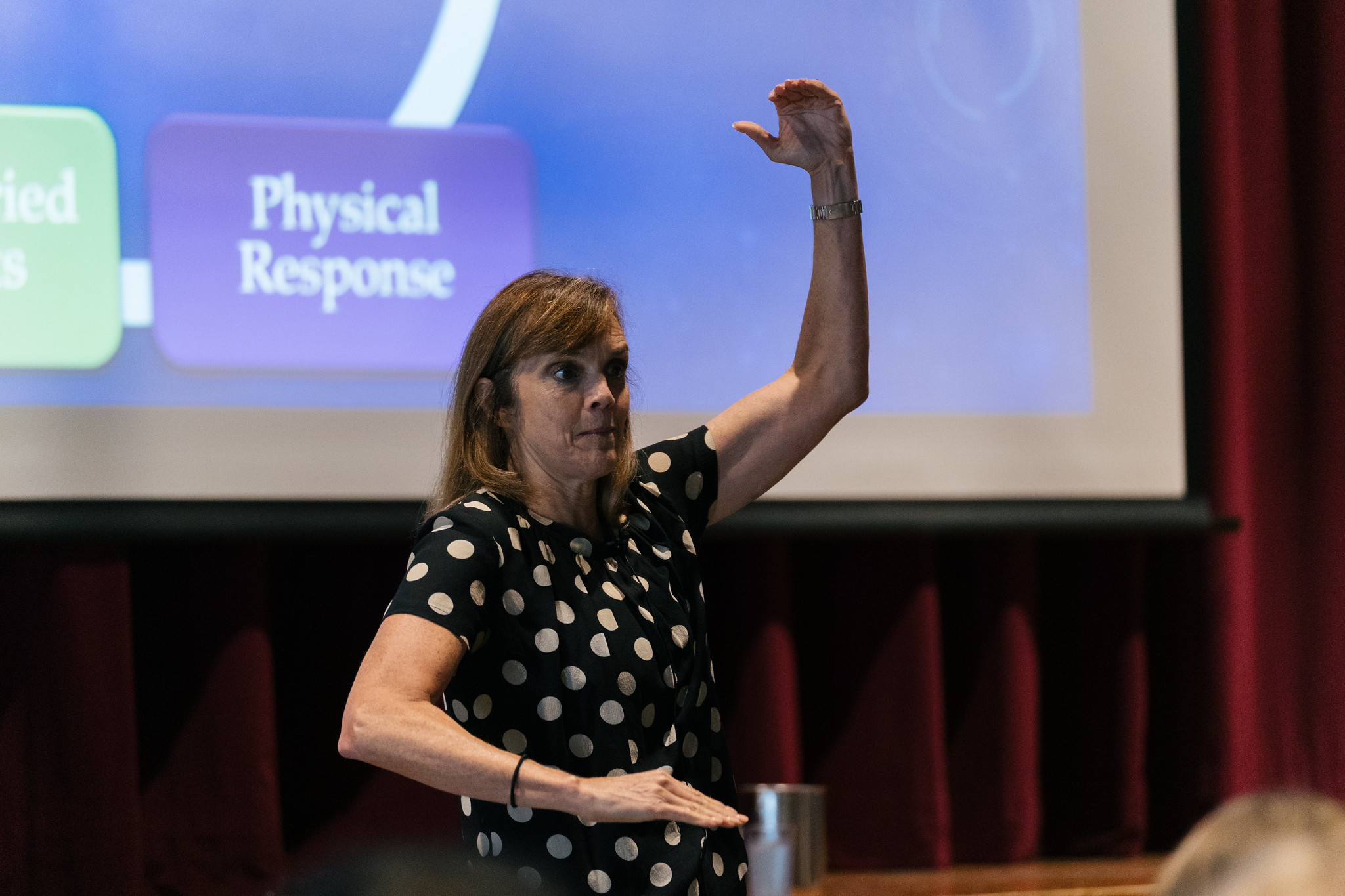Lynn Lyons Visits IMS, Speaks About Anxiety

Posted on October 15, 2023 by Indian Mountain School

Early in the school year, Lynn Lyons, LCISW, spoke to parents, students, and teachers about understanding the cycle of stress, and she shared strategies for managing anxiety. Ms. Lyons is a psychotherapist who has been in private practice for 30 years, specializing in the treatment of anxiety disorders in adults and children. She is a global speaker on the subject, and the co-author of several books, including Anxious Kids, Anxious Parents, and The Anxiety Audit.
Over the course of two days, Ms. Lyons shared her insights on how worrying thoughts and situations engage the amygdala (part of the brain that processes emotion responses), which can quickly heighten the worry and result in physical “fight or flight” responses. She described the traps we can all fall into, trying to rid ourselves of anxious thoughts and feelings, noting that trying to dispel the worry often just exacerbates it. She said that instead of trying to control or get rid of worrying thoughts, we need to shift our relationship with worry, externalize it, and learn how to tolerate uncertainty.

In an evening presentation and Q & A with parents, Ms. Lyons spoke about the stressors of perfectionism and achievement culture, the influence of constant media access, and how digital devices that allow us to track our children play into our tendencies of needing to know everything, which can actually heighten our worry and fear of the unknown. Ms. Lyons also shared how parental attempts as diffusing stress in kids by saying things like “what’s the worst that could happen,” and, “as long as you’ve done your best,” can often do more harm than good.
Needless to say, there were many “aha” moments to be had during the various presentations and discussions. To learn more about Lynn Lyons, visit: www.lynnlyons.com and continue the discussion by listening to her podcast: www.flusterclux.com
This website uses cookies so that we can provide you with the best user experience possible. Cookie information is stored in your browser and performs functions such as recognising you when you return to our website and helping our team to understand which sections of the website you find most interesting and useful.
Read our full privacy policy for more information.
Strictly Necessary Cookie should be enabled at all times so that we can save your preferences for cookie settings.
If you disable this cookie, we will not be able to save your preferences. This means that every time you visit this website you will need to enable or disable cookies again.
This website uses Google Analytics to collect anonymous information such as the number of visitors to the site, and the most popular pages.
Keeping this cookie enabled helps us to improve our website.
Please enable Strictly Necessary Cookies first so that we can save your preferences!